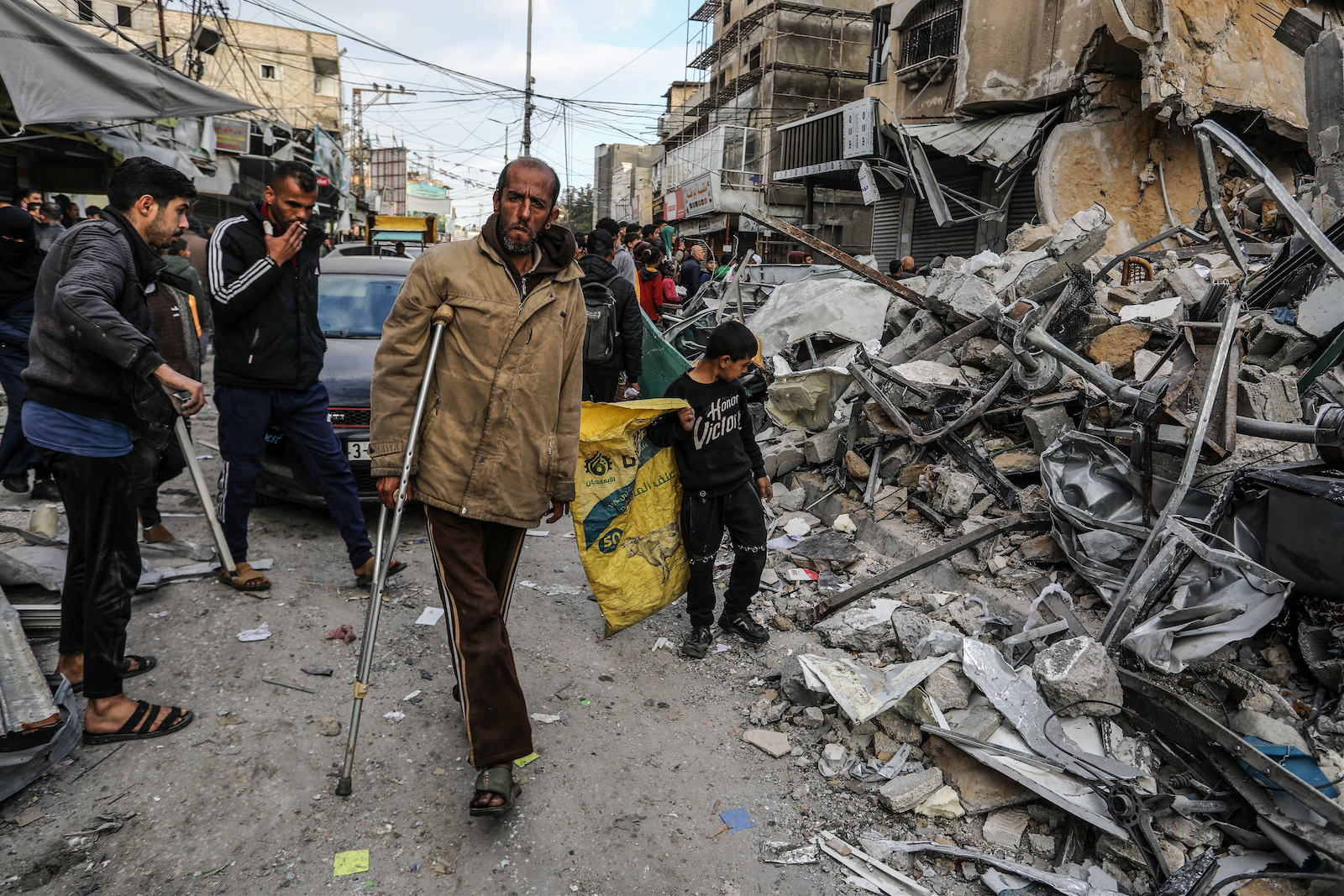
Aiding Those We Kill: U.S. Humanitarianism in Gaza
The spectacle, if it did not say it all, said much of it. Planes dropping humanitarian aid to a starving, famine-threatened populace of Gaza (the United Nations warns that 576,000 are “one step from famine”), with parachuted packages veering off course, some falling into the sea. Cargo also coming into Israel, with bullets, weaponry, and other ordnance to kill those in Gaza on the inflated premise of self-defence. Be it aid or bullets, Washington is the smorgasbord supplier, ensuring that both victims and oppressors are furnished from its vast commissary.
This jarring picture, discordant and hopelessly at odds, is increasingly running down the low stocks of credibility U.S. diplomats have in either the Israel-Hamas conflict, or much else in Middle Eastern politics. Comments such as these from U.S. Vice President Kamala Harris from March 3, made at Selma in Alabama, illustrate the problem: “As I have said many times, too many innocent Palestinians have been killed. And just a few days ago, we saw hungry, desperate people approach aid trucks, simply trying to secure food for their families after weeks of nearly no aid reaching Northern Gaza. And they were met with gunfire and chaos.”
Harris goes on to speak of broken hearts for the victims, for the innocents, for those “suffering from what is clearly a humanitarian catastrophe.” A forced, hammed-up moral register is struck. “People in Gaza are starving. The conditions are inhumane. And our common humanity compels us to act.”
It was an occasion for the vice president to mention that the U.S. Department of Defense had “carried out its first airdrop of humanitarian assistance, and the United States will continue with these airdrops.” Further work would also be expended on getting “a new route by sea to deliver aid.”
It is only at this point that Harris introduces the lumbering elephant in the room: “And the Israeli government must do more to significantly increase the flow of aid. No excuses.” They had to “open new border crossings,” “not impose any unnecessary restrictions on the delivery of aid” and “ensure humanitarian personnel, sites, and convoys are not targeted.” Basic services had to be restored, and order promoted in the strip “so more food, water, and fuel can reach those in need.”
In remarks made at Hagerstown Regional Airport in Maryland, President Joe Biden told reporters that he was “working with [the Israelis] very hard. We’re going to get more – we must get more aid into Gaza. There’s no excuses. None.”
In a New Yorker interview, White House National Security spokesman John Kirby keeps to the same script, claiming that discussions with the Israelis “in private are frank and very forthright. I think they understand our concerns.” Kirby proceeds to fantasise, fudging the almost sneering attitude adopted by Israel towards U.S. demands. “Even though there needs to be more aid, and even though there needs to be fewer civilian casualties, the Israelis have, in many ways, been receptive to our messages.”
The other side of this rusted coin of U.S. policy advocates something less than human. The common humanity there is tethered to aiding the very power that is proving instrumental in creating conditions of catastrophe. The right to self-defence is reiterated as a chant, including the war goals of Israel which have artificially drawn a distinction between Hamas military and political operatives from that of the Palestinian population being eradicated.
Harris is always careful to couple any reproachful remarks about Israel with an acceptance of their stated policy: that Hamas must be eliminated. Hamas, rather than being a protean force running on the fumes of history, resentment, and belief, was merely “a brutal terrorist organization that has vowed to repeat October 7th again and again until Israel is annihilated.” It had inflicted suffering on the people of Gaza and continued to hold Israeli hostages.
Whatever note of rebuke directed against the Netanyahu government, it is clear that Israel knows how far it can go. It can continue to rely on the U.S. veto in the UN Security Council. It can dictate the extent of aid and the conditions of its delivery into Gaza, which is merely seen as succour for an enemy it is trying to crush. While alarm about shooting desperate individuals crowding aid convoys will be noted, little will come of the consternation. The very fact that the U.S. military has been brought into the program of aid delivery suggests an ignominious capitulation, a very public impotence.
Jeremy Konyndyk, former chief of the USAID’s Office of Foreign Disaster Assistance during the Obama administration gives his unflattering judgment on this point. “When the U.S. government has to use tactics that it otherwise used to circumvent the Soviets and Berlin and circumvent ISIS in Syria and Iraq, that should prompt some really hard questions about the state of U.S. policy.”
In his remarks to The Independent, Konyndyk finds the airdrop method “the most expensive and least effective way to get aid to a population. We almost never did it because it is such an in-extremis tool.” Even more disturbing for him was the fact that this woefully imperfect approach was being taken to alleviate the suffering caused by an ally of the United States, one that had made “a policy choice” in not permitting “consistent humanitarian access” and the opening of border crossings.
Even as this in extremis tool is being used, U.S.-made military hardware continues to be used at will by the Israel Defence Forces. The point was not missed on Vermont Democratic Senator Peter Welch: “We have a situation where the U.S. is airdropping aid on day one, and Israel is dropping bombs on day two. And the American taxpayer is paying for the aid and the bombs.”
The chroniclers of history can surely only jot down with grim irony instances where desperate, hunger-crazed Palestinians scrounging for U.S. aid are shot by made-in-USA ammunition.

